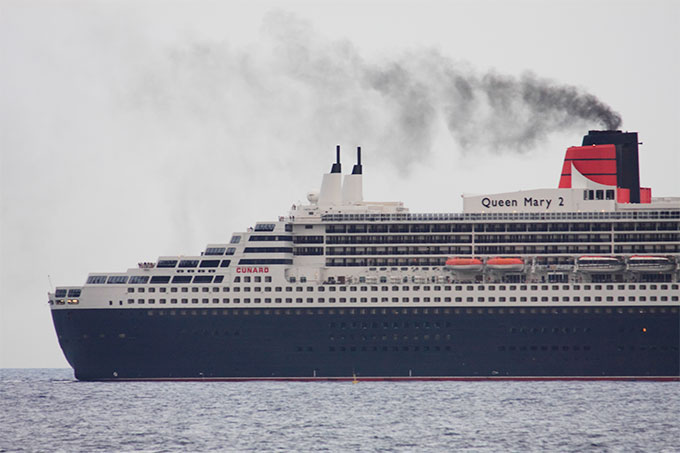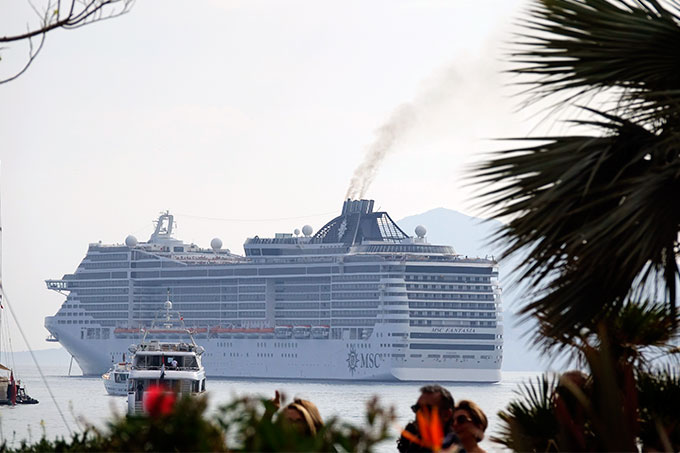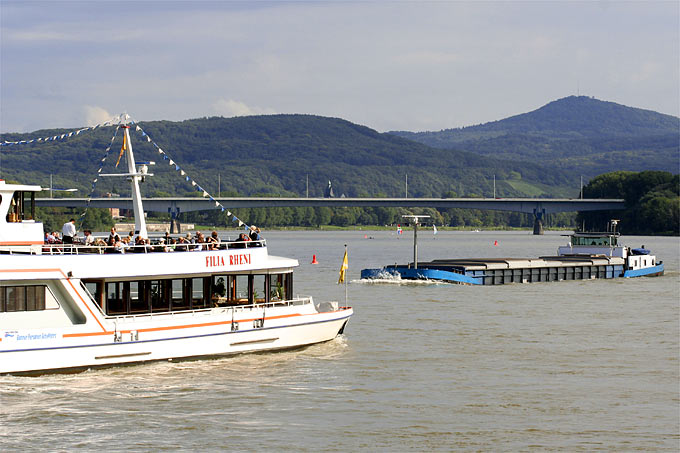Study on scrubbers for ships
NABU warns of negative impacts for the marine environment

Queen Mary - Foto: Peter Seyfferth
The study of the German environmental organisation NABU (Nature and Biodiversity Conservation Union) launched in March 2015 on the use of scrubbers for ships in order to reduce the sulfur content in the ships’ fumes evaluates the technology critically: The ecological risks for the marine environment are consequently ignored while at the same time the economic benefits are overestimated.
This is a result of the study conducted by the renowned Dutch research institute CE Delft that investigated ecological and economic impacts due to the use of scrubbers in the North and Baltic Sea for NABU. Scrubbers remove sulphur oxides from ships' exhaust gases and are a legal means in order to fulfill sulphur limit requirements in “Sulphur Emission Control Areas” (SECAs) besides a switch from heavy fuel oil to marine gas oil.
The outcomes of the study suggest that the impact of scrubbers on the marine environment before entitling this technique as a proper ‘solution’ in the European Sulphur Directive wasn’t investigated systematically. While it seems clear that simply discharging harmful substances into the ocean instead of to the air will not result in an improvement for the environment. The report shows that scrubbers cannot be considered a solution, neither in ecological nor in economical terms. These findings corresponded to the fact that a majority of renowned ship owners deliberately chose not to install scrubbers onboard their container vessels.
Another problem of scrubbers why they must also be rejected is their use allows ship owners to continue to sail on toxic heavy fuel oil instead of investing in cleaner fuels and eco-friendly drives. Ship owners who opt for scrubbers invested a lot of money in the wrong technology. A switch to low sulphur fuels like LNG or marine gas oil in combination with particle filters and SCR catalysts is the cleaner solution.
Key findings of the study were:
- Open and hybrid scrubbers dominate the market, closed loop systems barely exist.
- In particular small RoRo ferries, offshore service ships but also cruise ships operate scrubbers.
- The overall majority of the 14,000 ships sailing in European SECAs every year switched to low sulphur fuels (MGO) instead of installing scrubbers.
- It has to be assumed that persistent substances like PAHs, heavy metals (mercury, lead, arsenic), nitrate but also sulphur accumulate in the marine environment which may lead to an infringement of critical loads over time and in particular in areas with dense ship traffic. Same is true for changes of the water’s pH level.
- Unfortunately, the impact of wash water disposal from scrubbers has never been systematically investigated. There are no valid or long term data available. Research has to be carried out as there are reasonable doubts concerning the environmental compatibility of scrubbers.
- Possibly, the use of open loop scrubbers is in conflict with requirements set by the European Maritime Framework Directive as well as the Water Framework Directive which demand a requirement of improvement, a prohibition of deterioration and aim at a good environmental state by 2020.
- The economic model shows: Depending on the type of scrubber the use of low sulphur MGO may be more beneficial for ship owners than the operation of HFO in combination with scrubbers. The range between an optimistic and pessimistic scenario varied about 1.9 million EUR per year, showing additional annual costs of 1.2 million EUR as well as a maximum benefit of 0.5 million EUR per year. Taking into account current fuel price levels it is very hard to develop a positive business case for scrubber operation.
More Information
NABU presented its cruise ship ranking 2019. The findings of this year’s evaluation demonstrate that only a small proportion of fleets is becoming cleaner, while the industry by large continues to rely on heavy fuels and fails to employ exhaust technology. more →
Busses, Trains, Cars and Bicycles – there are manifold possibilities and means of transportation to navigate through one's day-to-day life. A comprehensive mobility is a given natural for our modern way of life, however, at the same time certain modes of transport have drastically negative effects on our climate, environment and health. more →


